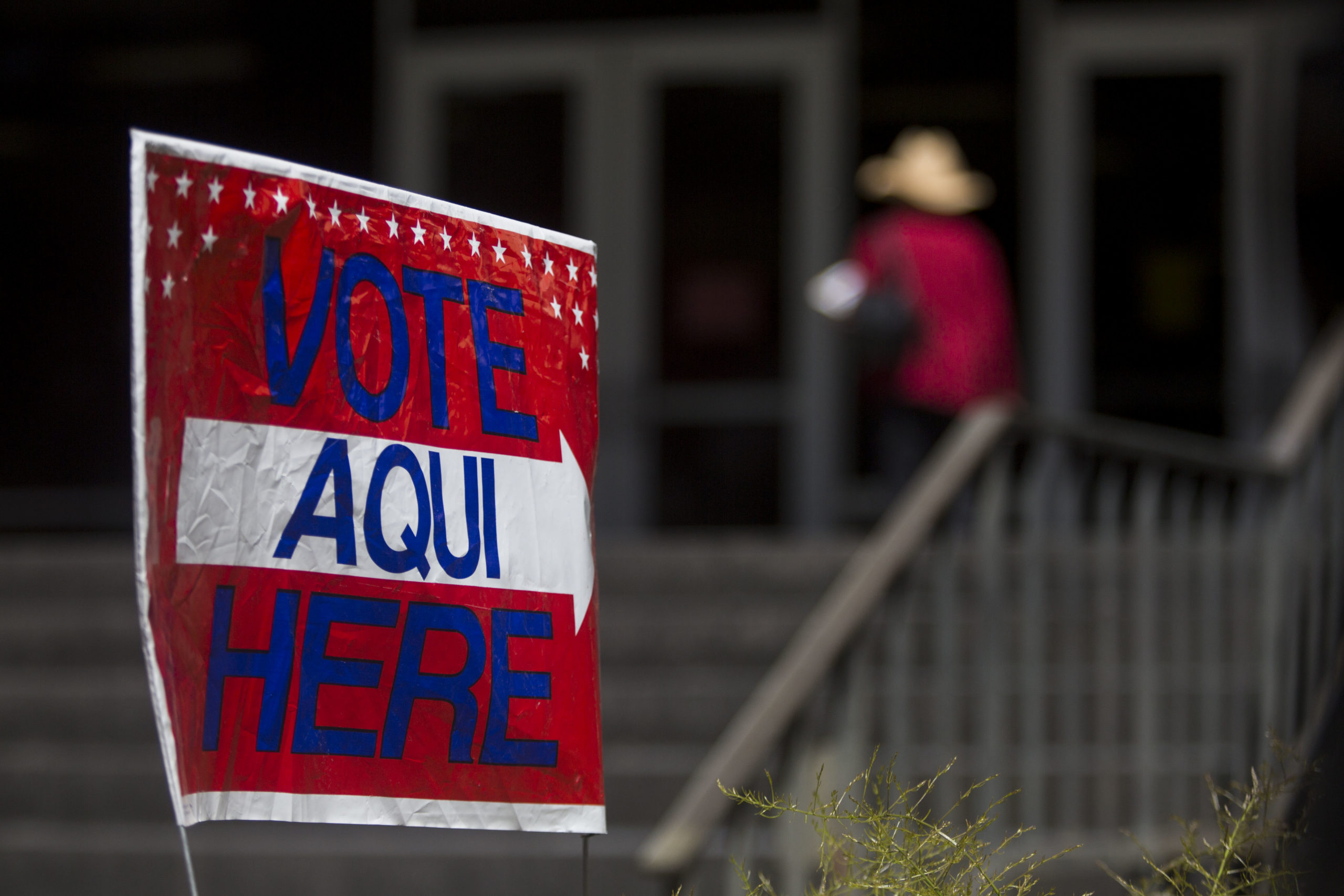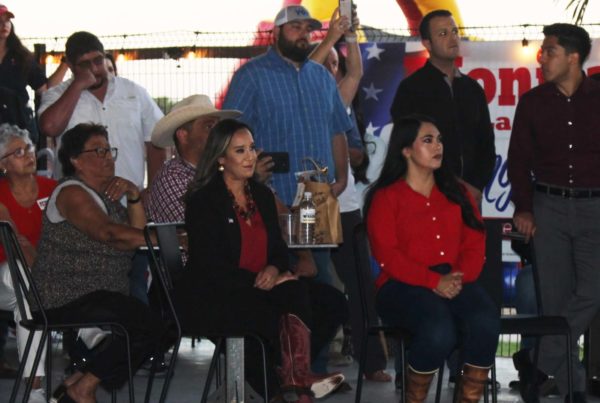Latino voters in Texas have been turning away from the Democratic Party for the past decade. Longtime blue strongholds in South Texas have felt the effects of this phenomenon the hardest, as The Texas Newsroom reports.
At the same time, the Latino vote only continues to grow in significance, especially in Texas, where Latinos are the state’s largest demographic group. Everything from border security to the economy and Donald Trump have been credited for the shift in voting patterns, but what really are the main issues on Latino voter’s minds this election season?
To take a closer look at some of the issues influencing Hispanic voters in Texas, the Texas Standard spoke with Sharon Navarro. She’s a political science professor at the University of Texas at San Antonio. Listen to the story above or read the transcript below.
This transcript has been edited lightly for clarity:
Texas Standard: Hispanic voters have become more issue-focused than party-focused. When we’re talking about top issues, it sounds like the economy is right up there.
Sharon Navarro: That’s correct. For the Latino electorate, it’s the red-letter issues. It’s the economy, it’s health care, it’s education, it’s gun policy, violent crime, everything that we’ve sort of witnessed as a larger community in the past few months.
Did you say immigration anywhere there?
Immigration is an important issue, but it’s not the top issue for Latinos.
When you’re trying to make a determination about where to cast your vote, you’ve got two columns: Republican, Democrat and sometimes Independent. Do you think that Latino voters are looking in those columns or are they looking for names, individuals, people that they’re associating with specific policies?
They tend to be voting along the issues that the candidates are speaking to them about. We’ve seen this trend beginning in the 2020 presidential election. We saw Donald Trump chip away at the base of the Democratic Party. We saw him talk about issues that were relatable to the Latino working class.
Republicans were able to capitalize on this. And they have candidates front and center that look like the demographics that are experiencing the hardships that most Americans are experiencing now: high inflation, gas prices and so on.
Democrats point out how Donald Trump has denigrated, talked down to and talked down about Hispanics. That doesn’t seem to be affecting Republicans’ success in reaching out to Hispanic voters, certainly not in South Texas. What’s going on?
I think the Latinos are more concerned about what’s in their pockets and what they’re able to put on the table for their children. Yes, these comments were made. But for Latinos, the most important issues are being able to support their family. And that’s what the Republicans have been able to capitalize on.
The Democrats are hoping that these kinds of issues, the racial issues that they’re trying to say that the Republicans are sort of hyper politicizing, are problematic, but the Latinos are more concerned about the narrative that is being constructed by the Democrats or Republicans in terms of the economy. And that’s working in the favor of Republicans.
What do you mean by “the narrative”?
The narrative that Joe Biden has allowed the economy to run away, leading to high inflation. And we have our Republican candidates saying, “we can get this under control if you elect me to the office.” And that seems to be the message that they’re driving home to the Latino electorate. And Democrats have kind of been silent on it. They really haven’t said anything about it. So I think that is working in favor of the Republican Party.
A lot of political analysts are looking to South Texas as a kind of a test of whether Republicans can make big inroads with the Hispanic vote. Do you see South Texas in 2022 as that test? And how do you think it’s going to go?
Absolutely. We have sort of this browning effect of candidates appearing within the Republican Party that we haven’t seen before, and they also happen to be all females. So, it will be interesting to see whether or not they can make inroads into the Democratic base that has long been supported by Latinos in South Texas.
If the Republicans can win one or two of those seats, the old narrative of Republicans in Texas being dominated by old white males will no longer be in effect. We will see this new type of Republican Party—not in the sense of its policies, because the policies haven’t changed, but of the people and demographics that are now resonating with those policies and reflecting those who can potentially be the majority-minority vote in future elections.














